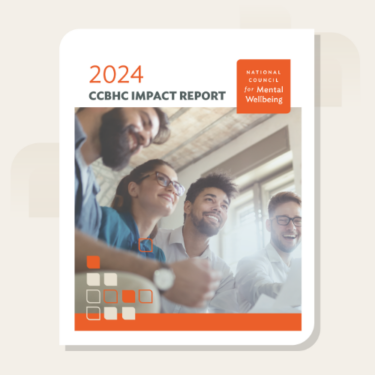Aim to join Demonstration that already includes 18 states.
WASHINGTON, D.C. — Fourteen additional states and the District of Columbia received a total of $15 million in planning grants from the Substance Abuse and Mental Health Services Administration (SAMHSA) to plan for implementation of the Certified Community Behavioral Health Clinics (CCBHC) model. The grants support efforts to join a CCBHC Medicaid Demonstration that has already expanded access to timely, coordinated and comprehensive mental health and substance use care to millions of people across the country. Approved Dec. 30, the new states are: Alaska, Colorado, Connecticut, Delaware, Hawaii, Louisiana, Maryland, Montana, North Carolina, North Dakota, South Dakota, Utah, Washington and West Virginia.
The grants support the development and implementation of the CCBHC model, including certification systems, establishing a Prospective Payment System (PPS) and preparing an application to participate in the demonstration. States participating in the demonstration receive enhanced federal Medicaid funding to support their launch of the model, while clinics receive a sustainable Medicaid payment rate.
“The majority of U.S. states are now either part of the CCBHC Medicaid Demonstration or preparing to be, which is testimony to the value they see in the ways CCBHCs improve access to lifesaving substance use treatment and recovery, crisis care services and integrated mental health care,” National Council for Mental Wellbeing President and CEO Chuck Ingoglia said. “I applaud this group of states for taking this crucial step toward making it easier for more people to find the care they need.”
The states have 18 months to conduct their planning process with the next 10 demo states being selected by July 2026.
CCBHCs already provide an estimated 3 million people with mental health and substance use care, according to the National Council’s 2024 CCBHC Impact Report.
The report found:
- CCBHCs in states that have implemented the model have seen a 33% increase in the number of people they have helped.
- More than 80% of CCBHCs are working in partnership with 988 Suicide & Crisis Lifeline call centers.
- 80% of clinics deliver mobile crisis response, greatly expanding access for underserved communities, particularly in rural areas.
- 98% of CCBHCs are actively engaged in partnership with criminal justice agencies to improve interactions with people who have mental health needs.
States already participating in the demonstration program are: Alabama, Illinois, Indiana, Iowa, Kansas, Kentucky, Maine, Michigan, Minnesota, Missouri, New Hampshire, New Jersey, New Mexico, Oklahoma, Oregon, Rhode Island and Vermont. Nevada and Pennsylvania are graduates of the demonstration, while Texas implemented the model using a Medicaid 1115 waiver.
About The National Council
Founded in 1969, the National Council for Mental Wellbeing is a membership organization that drives policy and social change on behalf of over 3,200 mental health and substance use treatment organizations and the more than 15 million children, adults and families they serve. We advocate for policies to ensure access to high-quality services. We build the capacity of mental health and substance use treatment organizations. And we promote greater understanding of mental wellbeing as a core component of comprehensive health and health care. Through our Mental Health First Aid (MHFA) program, we have trained more than 4.5 million people in the U.S. to identify, understand and respond to signs and symptoms of mental health and substance use challenges.
Media Contact
Sophia Majlessi
Media@TheNationalCouncil.org
202-621-1631


